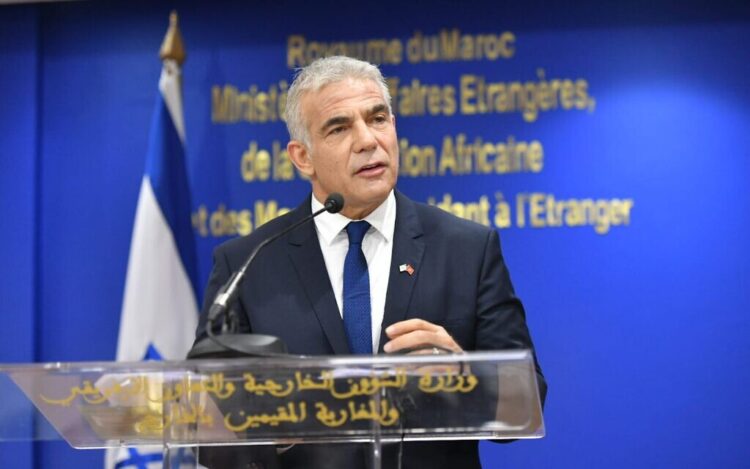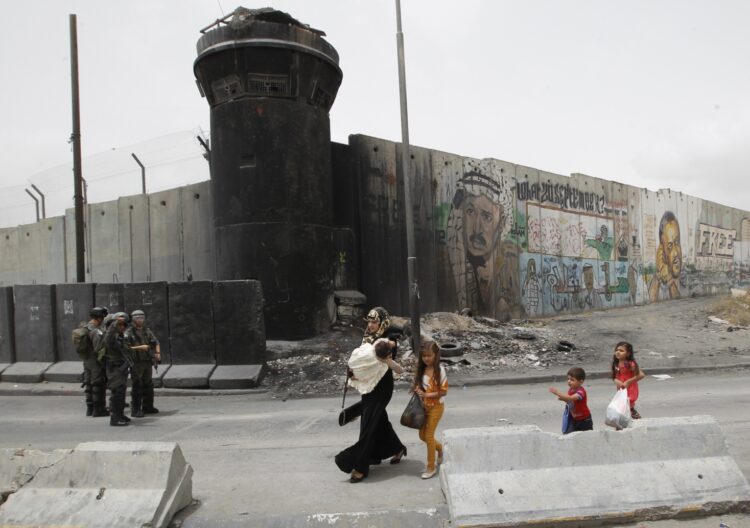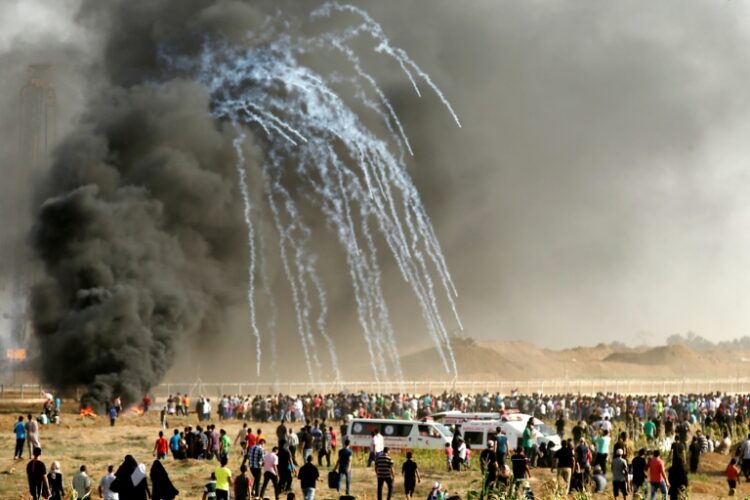Amnesty International’s controversial report labelling Israel as an “apartheid” state did not surprise the Israeli government in the least.
On January 3, Foreign Minister Yair Lapid said, “We think that in the coming year, there will be a debate that is unprecedented in its venom and in its radioactivity around the words ‘Israel as an apartheid state.'” He angrily dismissed that accusation as a “despicable lie.”
Lapid based his calculation on recent developments, which have put Israel on the defensive.

Last year, Human Rights Watch, as well as the Israeli human rights organization, B’Tselem, branded Israel as an “apartheid” state.
In addition, Israel’s treatment of the Palestinians is currently being investigated by the International Criminal Court, the International Court of Justice, and the United Nation’s Human Rights Council.
Amnesty International’s 278-page report, Israel’s Apartheid Against Palestinians: A Look Into Decades Of Oppression And Domination, was released in Jerusalem on February 1 by its secretary-general, Agnes Callamard.
Israel asked her not to release the document. Having been rebuffed, Israel’s Foreign Ministry denounced it as biased, designed “to demonize Israel and pour fuel onto the fire of antisemitism.”
Israel’s denunciations are impassioned, but are they true?
Before this question can be answered, the substance of the report should be examined.
Amnesty International did not directly compare Israel to apartheid-era South Africa, whose heavy-handed system of white supremacy, segregation and racism was internationally condemned.
Israel itself deplored apartheid, thereby risking its thriving bilateral relationship with South Africa.
Having visited South Africa in 1984, during the final phase of apartheid, I can confidently assert that Israel has never been and still is not a South African-style apartheid state.
Israel’s treatment of the Palestinians in the West Bank, however harsh it has been at times, has not been based on an arrogant spirit of racial domination or ethnic intolerance, but on the overarching imperative of preserving its security and crushing Palestinian terrorism.

Amnesty International regards apartheid through a different lens: “Apartheid is a violation of public international law, a grave violation of internationally protected human rights, and a crime against humanity under international criminal law.”
Amnesty International’s conception of apartheid, rooted in conventions like the Rome Statute, is further defined as “an institutionalized regime of systematic oppression and domination by one racial group over any other racial group.”
Its report covers not only the West Bank and the Gaza Strip, but Israel itself.
“Since its establishment in 1948, Israel has pursued a policy of establishing and maintaining a Jewish demographic hegemony and maximizing its control over land to benefit Jewish Israelis while restricting the rights of Palestinians and preventing Palestinian refugees from returning to their homes,” says the report. “Israel extended this policy to the West Bank and Gaza Strip, which it has occupied ever since.”
At the press conference, Callamard said, “Whether they live in Gaza, East Jerusalem and the rest of the West Bank, or Israel itself, Palestinians are treated as an inferior racial group and systematically deprived of their rights. Israel’s cruel policies of segregation, dispossession and exclusion across all territories under its control amount to apartheid.”
Some comments are in order.
Israel is a secular Jewish state with a Palestinian Arab minority representing 21 percent of its population. After the Holocaust, the international community recognized the need for a Jewish state in the ancestral home of the Jewish people. This rationale is as compelling today as it was in 1948. There is only one Jewish state in the Middle East, but a wide assortment of Muslim Arab states in the region.
The vast majority of Israeli Jews want a Jewish state, not a binational state that would soon morph into yet another Arab state. If Israel allowed Palestinian refugees to return en masse, demography would kick in and Israel would cease being a Jewish state.
Contrary to Amnesty International’s claim, Israel no longer occupies Gaza, which has been governed and fully controlled by Hamas since 2006 and 2007 respectively. Israel unilaterally withdrew from Gaza in 2005, levelling all its settlements there and repatriating their Jewish inhabitants.

Israeli Palestinians were indeed stripped of much of their lands from 1948 onwards, but they are generally free to reside where they wish. In practice, they prefer to live in Arab villages and towns and in mixed Arab-Jewish cities like Ramle, Jaffa and Haifa. There is no official residential segregation, as Callamard suggests. But there have been instances of racism when Israeli Arab citizens have been denied the right to buy homes in Jewish villages.
Palestinian Israelis, a small proportion of whom are disaffected from Israel, face discrimination in private and public employment and in housing, but some have reached the highest posts in the land. And Palestinian Israelis can exercise their right to vote in elections. There is no plausible comparison between their situation and that of South African non-whites during the apartheid period.
Amnesty International accuses Israel of tacitly having annexed the West Bank and of illegally having built a network of settlements in defiance of international opinion.
This is true.
The current Israeli government of Prime Minister Naftali Bennett supports the settlement movement, has no intention of ending the occupation or negotiating with the Palestinian Authority, and steadfastly opposes a two-state solution. As far as Bennett is concerned, there is no political horizon, now or in the future. Bennett’s rejectionist policy is a prescription for endless tension, violence and foreign criticism of Israel.

Amnesty International’s biting critique of Israel’s policy in the West Bank is not in the least antisemitic. Nor is it a rejection of Israel’s existence. As Callamard said, “We recognize the right of the Jewish people to self-determination. We recognize the existence of the Jewish state of Israel.”
But its recommendation that weapons sales to Israel should be cut off is totally unreasonable and unacceptable. Facing a plethora of regional enemies, notably Iran, Hezbollah and Hamas, Israel has every right to defend itself with modern, state-of-the-art military equipment. This is non-negotiable.
Israel does not emerge from the report smelling of roses. But how could it? Israel’s occupation of the West Bank is a poisonous chalice, corroding its moral foundations, tarnishing its reputation, and threatening to turn it into a binational state.
In short, Israel is not an apartheid state in the old South Africa meaning of the word, but its continuing occupation and settlement program in the West Bank dovetails with Amnesty International’s definition of apartheid.
